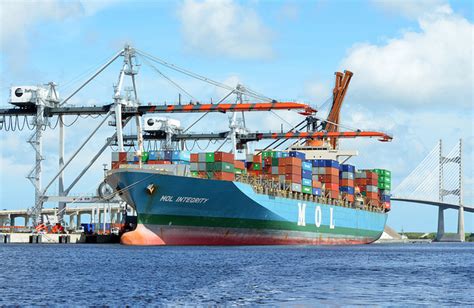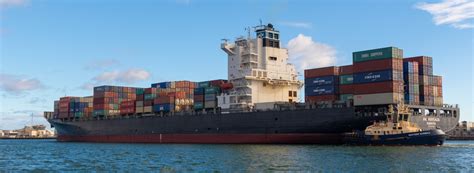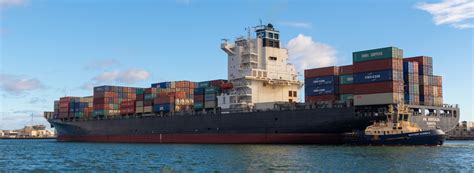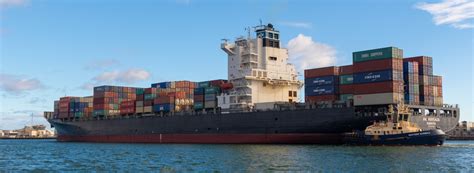
- Introduction
- 1. International Treaties
- 2. National Legislation
- 3. Common Law
- 4. Customary Law
- Table: Summary of Four Primary Sources of Maritime Law
- Conclusion
-
FAQ about Four Primary Sources of Maritime Law
- 1. What are the four primary sources of maritime law?
- 2. How do national legislation and international conventions interact?
- 3. What is the significance of international customary law?
- 4. How do the four sources of maritime law determine the rights and obligations of parties at sea?
- 5. What are some examples of national legislation in maritime law?
- 6. Which is the most important international convention in maritime law?
- 7. What is the role of general principles of law in maritime disputes?
- 8. How does maritime law ensure safety and order at sea?
- 9. Who is responsible for enforcing maritime law?
- 10. Why is it important to have comprehensive and up-to-date maritime laws?

Introduction
Ahoy there, readers! Welcome to our deep dive into the vast, enigmatic realm of maritime law. Just like the rolling waves that guide seafaring vessels, maritime law provides the framework for navigating the complex legal waters of the high seas. In this comprehensive guide, we’ll explore the four primary sources that shape this fascinating legal landscape. Let’s cast off and embark on this high-seas legal adventure!
Maritime law, also known as admiralty law, is a specialized body of law that governs maritime activities, including shipping, navigation, and marine commerce. Its origins can be traced back to ancient maritime civilizations, such as the Phoenicians, Greeks, and Romans. Over time, maritime law has evolved to become a complex and comprehensive system that addresses a wide range of legal issues related to the sea.
1. International Treaties
International treaties are formal agreements between nations that establish binding rules and regulations for maritime activities. These treaties are often negotiated and adopted through multilateral organizations, such as the International Maritime Organization (IMO). Some of the most important international treaties governing maritime law include:
United Nations Convention on the Law of the Sea (UNCLOS)
UNCLOS is the most comprehensive international treaty on maritime law. It establishes a framework for the regulation of all aspects of the oceans, including navigation, fishing, and environmental protection.
International Convention for the Prevention of Pollution from Ships (MARPOL)
MARPOL regulates the discharge of pollutants from ships into the marine environment. Its provisions are designed to protect the oceans from pollution caused by oil, chemicals, and other hazardous substances.
2. National Legislation
National legislation refers to the laws enacted by individual countries to regulate maritime activities within their territorial waters and exclusive economic zones. These laws may vary from country to country, but they generally cover similar topics, such as:
Admiralty Jurisdiction
Laws that establish the jurisdiction of national courts over maritime disputes.
Ship Registration
Laws that govern the registration and ownership of ships.
Maritime Safety Regulations
Laws that set standards for ship construction, equipment, and navigation.
3. Common Law
Common law is a body of law developed by judges through decisions in individual cases. It plays a significant role in maritime law, particularly in areas that are not covered by treaties or national legislation. Common law principles include:
Negligence
The legal duty to take reasonable care to avoid causing harm to others.
Strict Liability
Liability for harm caused by an activity, regardless of whether there was any negligence.
4. Customary Law
Customary law is a body of law that arises from the long-standing practices and traditions of the maritime community. It is recognized as binding by courts in the absence of conflicting treaty or statutory law. Some of the most important customary laws include:
Laws of the Sea
Rules governing navigation, safety, and the rights and obligations of ships at sea.
Law of Salvage
Rules governing the salvage of ships and cargo from distress.
Law of General Average
Rules governing the apportionment of losses and expenses incurred in the preservation of a ship and its cargo.
Table: Summary of Four Primary Sources of Maritime Law
| Source | Description |
|---|---|
| International Treaties | Binding agreements between nations |
| National Legislation | Laws enacted by individual countries |
| Common Law | Law developed by judges through decisions |
| Customary Law | Law based on long-standing practices and traditions |
Conclusion
There you have it, readers! We’ve navigated the four primary sources of maritime law, providing you with a solid understanding of the legal framework that governs the high seas. From international treaties to customary practices, this body of law ensures order and fairness in the vast expanse of the ocean.
But hold on tight! We have more maritime law adventures in store for you. Check out our other articles for a deeper dive into specific areas of this fascinating legal landscape. Until then, may your sails always be full and your legal waters calm!
FAQ about Four Primary Sources of Maritime Law
1. What are the four primary sources of maritime law?
- National Legislation: Laws enacted by individual countries governing maritime activities within their territorial waters.
- International Conventions: Treaties or agreements between nations establishing uniform rules for maritime matters.
- International Customary Law: Long-standing practices and principles that have been consistently followed and accepted by the maritime community.
- General Principles of Law: Recognized and established principles of law, such as good faith and equity, that are applicable to maritime matters.
2. How do national legislation and international conventions interact?
- National legislation usually prevails within a country’s territorial waters, while international conventions generally govern matters that occur beyond these waters.
3. What is the significance of international customary law?
- It provides guidance and consistency in maritime matters that are not expressly covered by national legislation or international conventions.
4. How do the four sources of maritime law determine the rights and obligations of parties at sea?
- Courts and tribunals consider all four sources to interpret and apply the applicable law to maritime disputes.
5. What are some examples of national legislation in maritime law?
- Merchant Shipping Acts, Maritime Code, and Port and Harbour Regulations.
6. Which is the most important international convention in maritime law?
- United Nations Convention on the Law of the Sea (UNCLOS).
7. What is the role of general principles of law in maritime disputes?
- They fill any gaps in the other three sources and ensure fairness and equity in decision-making.
8. How does maritime law ensure safety and order at sea?
- It establishes regulations for navigation, pollution prevention, and conflict resolution.
9. Who is responsible for enforcing maritime law?
- National authorities, such as coast guards and navies, as well as international organizations like the International Maritime Organization (IMO).
10. Why is it important to have comprehensive and up-to-date maritime laws?
- To regulate the activities of seafarers, protect marine resources, and facilitate international maritime commerce.



